|
I’ve boasted before that I don’t get writers block. Although that’s true for me personally, I know that’s not true for everyone. So in this issue of “Writerly Things” I am going to talk about what I do to keep my muse fed and strong.
Now, the muse of inspiration is that psychological component of our imaginative thinking that spools up to hyper-drive speeds whenever something intrigues us or strikes our fancy. Those with overactive imaginations may never be without their muse, while others will find it hard to keep their muse by their side. The trick is *stimulation. The brain is a finicky thing. It likes being addicted to things. It wants to be addicted to things. The trick is not to let it get addicted to anything for too long, because here lies the mud-swamps of stagnation, a purgatory where things get mucked up due to the burn-out of being consigned to monotony. If you only feed your muse one thing, that’s like trying to maintain a healthy diet on Twinkies only. It’s impossible. You need to feed your muse a full course meal complete with veggies! Try not to let your muse get bogged down. If she (or he) is becoming complacent or too content, shake things up a bit – reinvigorate that relationship with a bit of excitement. A fat and bored muse is an unhappy and unhealthy muse. How do I keep my muse well fed? I stay busy. I do I keep my muse strong, I keep her engaged and active. But that doesn't mean we never relax together. Sometimes its about taking in the view, recharging our batteries, and resting our productive energies. You see, these down times when my muse is resting, these are vital. They are vital for the very reason that it helps prevent my muse from being confined to a prison. The muse has to roam free. The muse doesn't like pressure. She (or he) has to be laid back and carefree. If you pressure the muse, she will resent you. If you demand things of her, she will just leave you hanging, high and dry, without a single idea to wet the tip of your pen and without any inspiration to whet your imagination’s voracious appetite. This is why you need to feed your muse with ambrosia and pamper her in those down times. A fed muse is a happy muse. So how do I keep my muse active and fed? Gee, I’m glad I asked myself that so I can tell you! By day I am a school teacher. I deal all day long with prepubescent children and little kids. After work, I return home to where I have two wonderful kids of my own. That’s when daddy duties begin. My weekends are filled with either school related activities or doing things with my own children – usually both. When it comes to my children, I keep them active and busy too. And well fed. Active and well fed children are happy children. We will play at the park. We like to go on bike rides. We go to the zoo. We catch bugs. We visit the pet store or the pet cafes (e.g., a pet shelter where you can enjoy a drink while getting to know the animals – it’s a Japan thing). We go shopping. We go to movies. We go to museums. We do many, many things together. My son is only six months old, but I read him many picture books. He loves pictures books! Loves them! He squeaks, squeals, coos and chirps at every page. He loves the colors. He loves the rhythms of the written word. He blows spit-bubbles to them. Picture books are his thing. My daughter turned five this year and goes to preschool. Since we live in Japan we send her to a private preschool where she can take classes in English (it’s an International school that integrates Japanese students, mixed, and foreign students). My daughter’s name is Solara (it means sunshine in Greek) and we keep her very busy. She has weekly swim practice, abacus, and piano. She wants to do ballet too. She also does child modeling. Some days she tells me she just wants to stay home and relax, and those are our cuddle days where we plop down in front of the television and watch our favorite shows together. Most days, however, we don’t have time for TV. That is, we've never just set the child down in front of the television and left them there. If the television is on, it’s because there is a show we all want to watch together. That’s just how it is at our home. My son will likely be just as busy. As parents we are busy keeping them on their schedules! When evening time rolls around, we read books together or watch films. I introduced my daughter to the Back to the Future trilogy and the Jurassic Park films, to Doctor Who, and her personal favorite Batman. She’s only five, but she can name all of the Teen Titans and JLA. I've introduced her to Three’s Company, The Cosby Show, and my personal favorite House, M.D. She laughs as all of Dr. Gregory House’s jokes. Yeah, I know, what you’re thinking, even with a limited television policy, still, I probably show her too much television. I debated whether or not to allow her to watch certain shows at all. Doctor Who can be too scary for young children. I've skipped many episodes for that very reason. The same goes for House, as it is a mature show, and has mature themes and often shows graphic aspects of surgery. Some stuff I fast forwarded through or skipped. But the stuff I allowed her to see, she loved it. I've read my daughter Charlotte’s Web and numerous fairy-tales, “Jack and the Beanstalk” being her current favorite. I even began reading her Starship Troopers, mainly because I've never read it before and there’s only so much time in the day – she asked if I’d read it aloud to her, so I am. She thinks it’s boring so far. Her current dream is to become a doctor / super model – which is quite amazing to me. It’s an amazing dream. When I was five, my dream was to be able to draw a horse well enough so that it actually looked like a horse. That was the extent of hopes and aspirations. I still cannot seem to draw a very good horse. But I digress. My daughter, unlike her old man, expresses a high intelligence and a maturity that comes with it. Most people lack this intellectual maturity. Especially young children. None of my students have it. None of my students for the past decade have had it. But it’s not their fault; it’s partly genetic and partly environmental. There’s only so much you can do, but whatever you do, keep your child active and fed – and they will be happy children. And that’s what matters. I only bring this family related aside up because my daughter has never once complained to me about being bored. Well, that’s not entirely accurate. There was this one time where she complained about being bored because she was playing with her younger cousin and her cousin just wanted to play the same game again and again… and again… and again. That’s the mud-swamp of repetitious monotony. That’s where the mind stagnates. The moment you get stuck… you stop stimulating your brain and your muse sinks into the quagmire of mediocrity, and you feel hard pressed to get out again. Boredom breeds apathy, and soon enough you find yourself perpetually stuck in a state of being bored but cannot seem to muster enough gumption to do anything about it. Pretty soon your muse consigns herself to a slow death in that abominable quicksand of ennui, and as fate would have it, that is where the dreaded deadline sneaks up on you. And you’re not ready for it. Why? Because you have let your brain, and your muse, stagnate too long. The main trick to feeding the muse, I have found, is keeping the brain stimulated – overstimulated, in fact. It works. It’s tiring, but it works. It’s also why I tend to write two or three novels (both fiction and non-fiction) at the same time. Keep things shaken up means that if it seems like I might start to get stuck in one area I can drift to another area without losing momentum. Then I can slide right back over to where I left off without losing a pace. Heck, this is probably why I enjoy writing both fiction and non-fiction in the first place. For that matter, it’s probably why I like to genre hop, or blend my genres. It’s why I like to watch everything from kid’s animation to adult medical dramas. It’s why I try to fill every moment of my day and nights with something for my muse to chew on. The brain is not a muscle. It doesn't need to rest, except to get sleep and recharge. But when it’s going – you can throttle that thing all the way to top speed and keep it there. But that requires a bit of work to keep it stimulated. Like Charlie Sheen, the brain just has one speed, “Go.” My advice is, take advantage of that fact. But there is only so much you can feed your muse without your muse becoming obese. You don’t just want a well-nourished muse, you want a strong muse. One that is ready for the task. So you have to exercise that muse. At the end of the day, if you haven’t written anything, then nothing has been accomplished. Writing is an act of labor, and takes real work. Especially if you ever want to be any good at it. Practice makes perfect, after all. As Neil Gaiman once famously replied when asked about how one becomes a writer, he said: “Write the ideas down. If they are going to be stories, try and tell the stories you would like to read. Finish the things you start to write. Do it a lot and you will be a writer. The only way to do it is to do it.” And that’s the whole point. If you do happen to find yourself in the mud-swamps of ennui, the only way to get out is to pull yourself up by the bootstraps and get out. As Neil Gaiman so rightly puts it, the only way to do it is do it. The only way to be a writer is to write. If you don’t do at least this much then, obviously, nothing ever gets written. The stories stay forever in limbo, and you are not a writer – you would effectively be demoted to a dreamer with aspirations of one day becoming a writer. It’s not big secret. Writing is damn hard work. Especially if you have to juggle a family life and a full time career on the side. That doesn't mean writing is a hobby. I still write prolifically compared to most authors I know. I put as much time in writing as I do my day job – and then some. But when it comes down to it, writing isn't all fun and games. It’s a discipline. If you want to avoid the prison of the muse, you’re gonna have to keep your muse fed and put in all the hard work required to making something good – something that will satisfy both you and your muse – and hopefully a lot of other people as well. So you see, my muse never goes hungry. If anything, she is overfed. But, then, that’s a good thing because I don’t ever suffer from that dreaded “writer’s block.” I’m not saying this method will work for everyone, but it seems to be working well enough for me. Just some food for thought. Now go forth and write!
0 Comments
Leave a Reply. |
Tristan VickBy day I am an educator and a cultural ambassador. By night I entertain notions of being a literary master. In reality I am just a family man and ordinary guy who works hard and loves writing just about as much as I love my family. Just about. AVAILABLE NOWNEWSLETTER
|


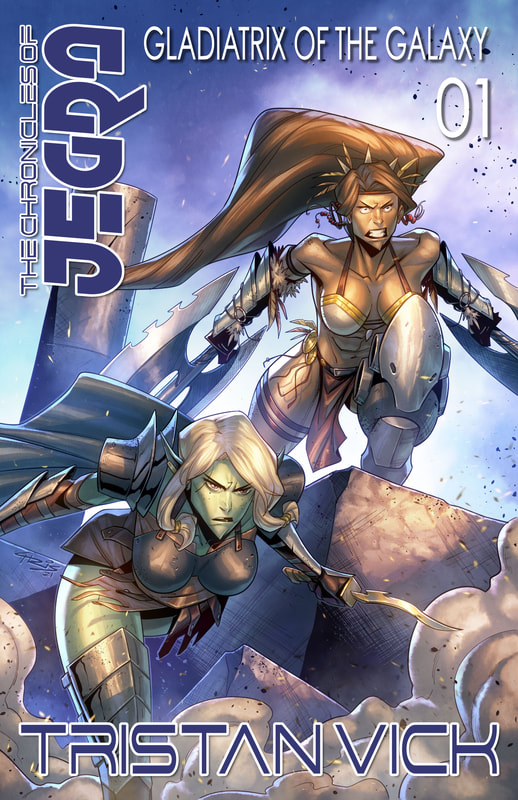

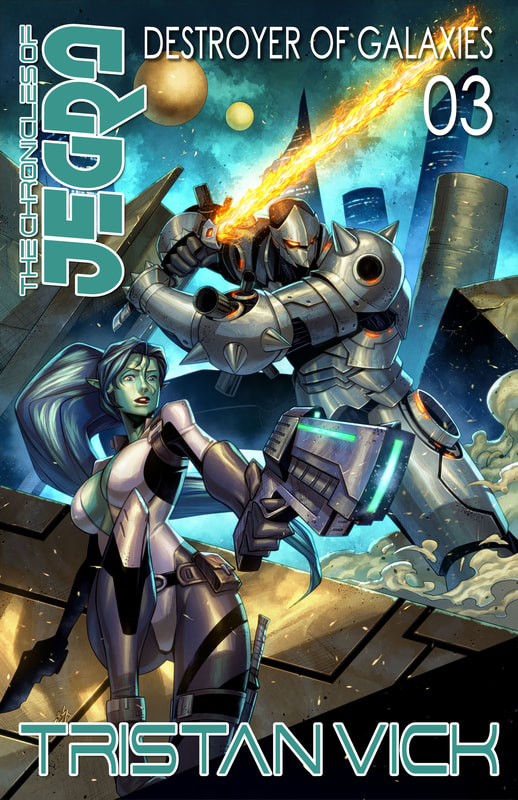
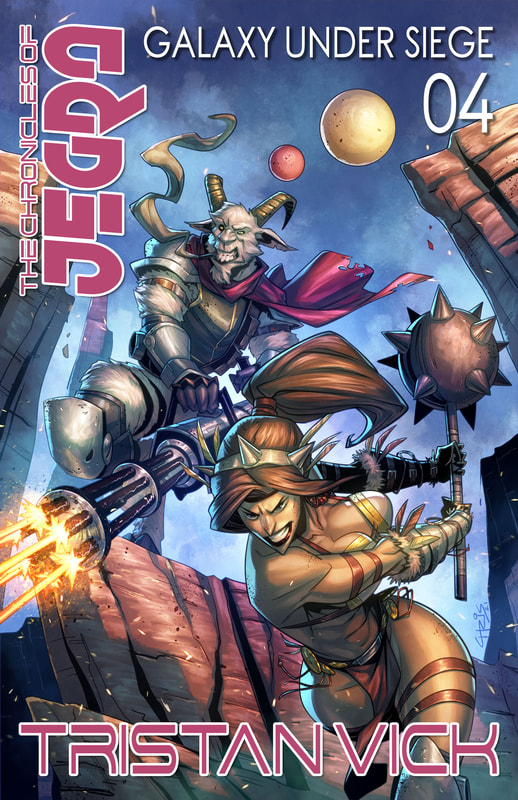
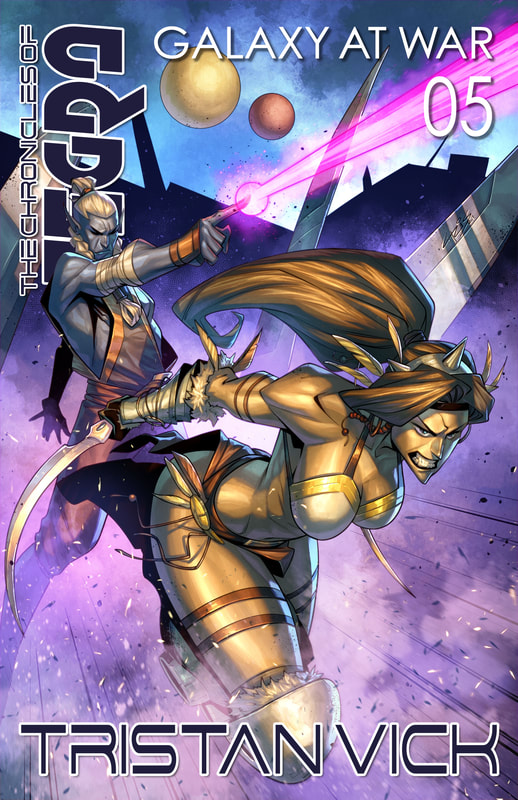
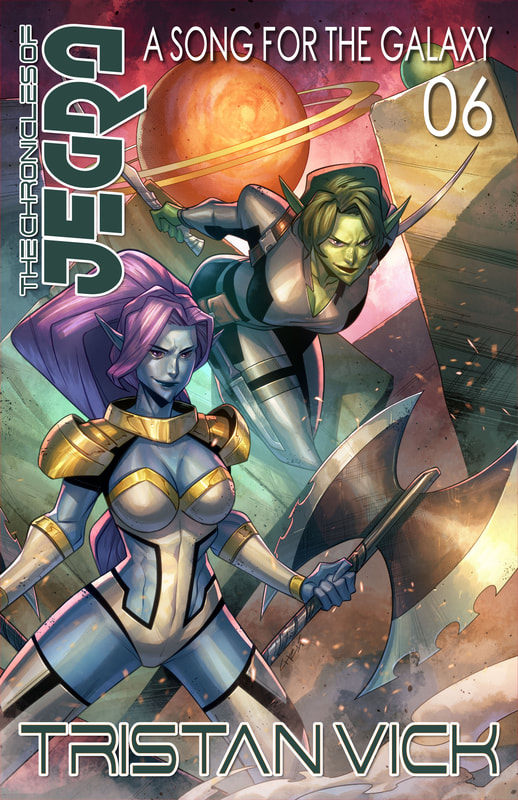
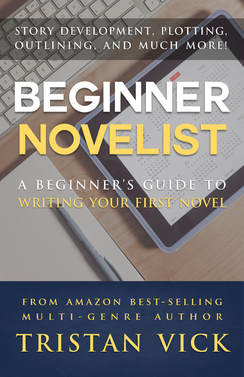
 RSS Feed
RSS Feed

